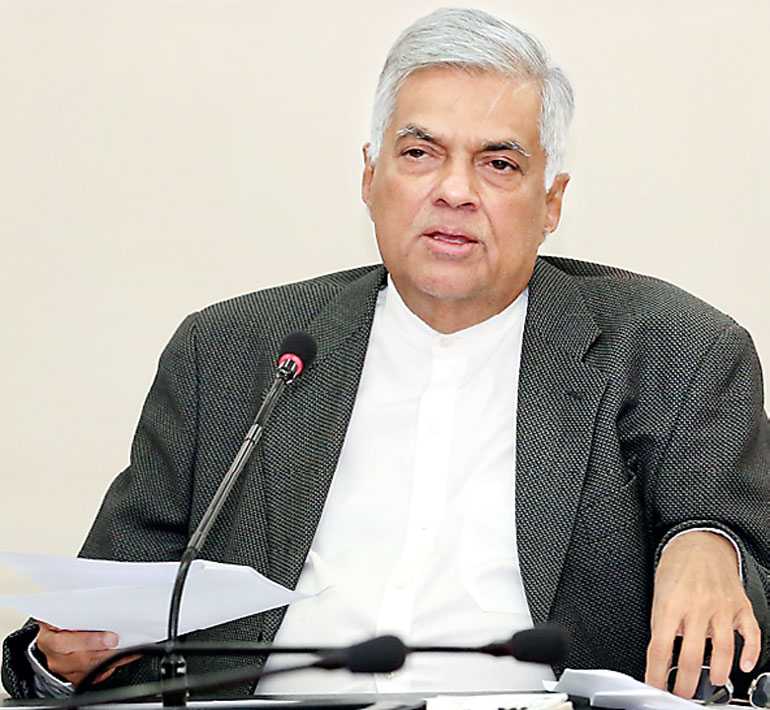Tuesday Feb 24, 2026
Tuesday Feb 24, 2026
Monday, 29 April 2019 01:06 - - {{hitsCtrl.values.hits}}

PM proposed counter-terrorism legislation gridlocked at oversight committee
Says new intelligence sharing system to be established with Interpol
PM insists radical extremists will be wiped out
Prime Minister Ranil Wickremesinghe yesterday called for the speedy presentation of the proposed Counter-Terrorism Act (CTA) to Parliament and said a slew of other measures would be taken to increase security and stamp out extremism with the consultation of the Muslim community.
Prime Minister Wickremesinghe, releasing a statement, said that investigations into the Easter Sunday attacks were proceeding well and said it was important to return the country to normalcy.
“We have seven intelligence gathering arms, and they are now working closely together. In addition, the Criminal Investigation Department (CID) is also conducting investigations and has found much important information. Therefore we feel that investigations are progressing well.”
However, he acknowledged legal changes would have to be made to improve security and better enforcement of existing laws would also be necessary.
“There are reports of teachers coming to Sri Lanka without work visa and teaching at various establishments. The Muslim Affairs Ministry and Home Affairs Ministry will work to have such people deported. There will be discussions with the Muslim community and the relevant line Ministries on new laws and regulations and those recommendations will be submitted to the Government.”
“We must appreciate the support given by the Muslim community. I request that no one do anything harmful to them. We will all work together as Sri Lankans to wipe out Jihadi terrorism. The Home Affairs Minister and the State Minister of Defence will join together to ensure that all goods and people entering and leaving the country and movement around within the country is done according to the law. An intelligence exchange between Interpol and Sri Lanka will be set up. We have received a progress report on this and hope to expedite it,” he said.
Returning to the topic of banning the two organisations investigators are linking to the bombings, the Prime Minister reiterated the gaps in the local legal system and said they would need to be rectified as soon as possible.
“We are using State of Emergency to ban these organisations. There are no laws at present for us to act on Sri Lankans connected to terror organisations or activities outside the country. The Prevention of Terrorism Act of 1978 is only limited to terror activities within Sri Lanka. It was later expanded to include people living in camps in South India, which is clearly stated in its second and third clauses. To fill this gap, we included additional points in the proposed Counter Terrorism Act (CTA). Under the CTA any Sri Lankan working against the interests of Sri Lanka or a foreign state would be breaking local laws and can be held accountable in Sri Lanka.”
The Prime Minister said the CTA was finalised in 2018 but it is currently stuck in the relevant parliamentary committee. He appealed for its members to fast-track the process of submitting it to Parliament for approval so that the Government could strengthen its legal framework. “We lost a valuable opportunity to bring these people to book. We cannot lose another opportunity.”
“It must be clearly stated that these people are extremists. They are not part of any religion. In fact, they are against all the religions of this country. We will stop the spread of these extreme ideologies and radicalisation. Many of these people have already been arrested and others have died. This has enabled us to have the opportunity to return to normalcy. We must stamp out this Jihadi extremism immediately.”